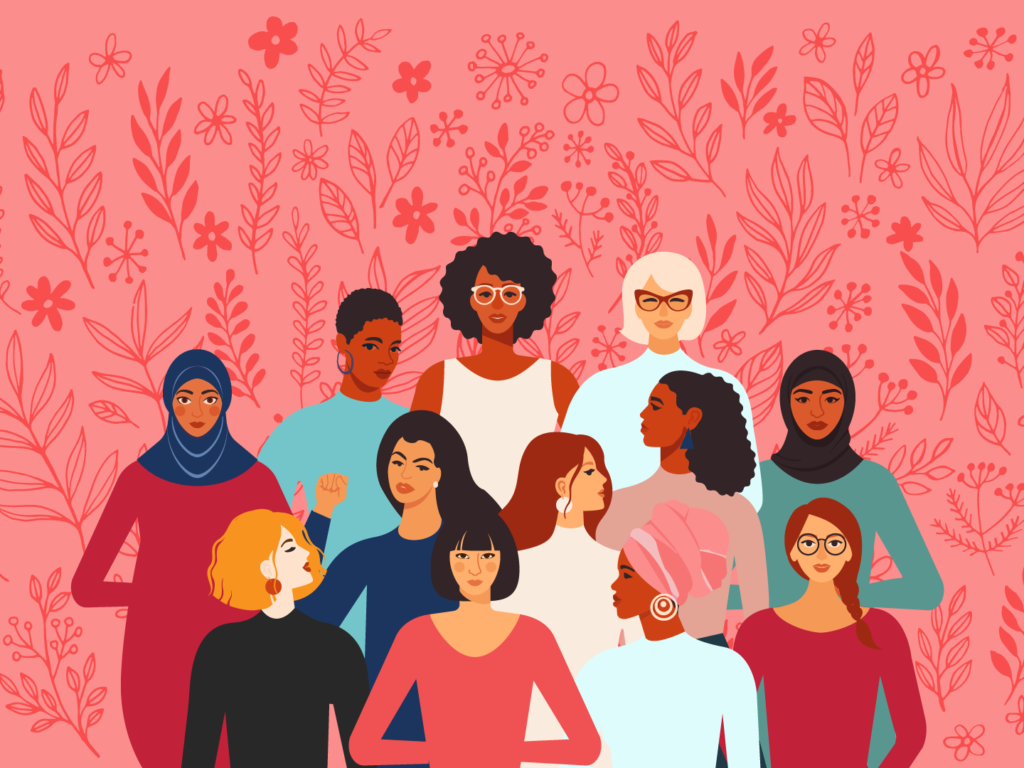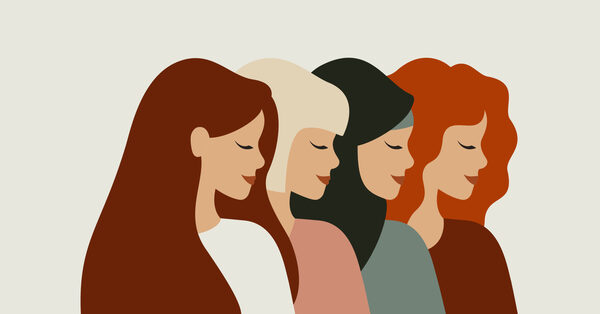Hay un tipo de mujer que la sociedad adora: la “buena mujer”🍃 Esa que cumple cada expectativa al pie de la letra, que nunca levanta la voz más de lo que es “femeninamente aceptable” y que, por supuesto, hace todo «porque tiene que», no porque quiera, porque lo disfrute. Ella es dócil, abnegada, impecable… y, curiosamente, casi siempre agotada. Porque si te atreves a salirte del molde, ya no eres una buena mujer; eres frívola, egoísta, maquiavélica. O, como diría Taylor Swift: una “mad woman”. Y claro, nadie quiere ser la loca… hasta que descubres que es mucho más divertido (y saludable) vivir en tus propios términos❤️🔥
There is a type of woman that society adores: the "good woman"🍃 The one who fulfills every expectation to the letter, who never raises her voice more than what is "femininely acceptable" and who, of course, does everything «because she has to», not because she wants to, because she enjoys it. She is docile, self-sacrificing, impeccable... and, curiously, almost always exhausted. Because if you dare to break out of the mold, you are no longer a good woman; you are frivolous, selfish, Machiavellian. Or, as Taylor Swift would say: a "mad woman". And of course, no one wants to be the mad woman... until you discover that it's much more fun (and healthier) to live on your own terms ❤️🔥
 ---
🍃El mito de la "buena mujer"🍃
---
🍃El mito de la "buena mujer"🍃
La “buena mujer” según el manual no escrito de la sociedad es: estudia lo justo, se casa joven, forma una familia perfecta y se queda en casa manteniendo todo en orden. Ojo, no hay nada malo en ese estilo de vida… siempre y cuando sea una elección genuina y no una obligación disfrazada de destino. El problema comienza cuando esa imagen se convierte en el único molde válido, y todo lo que se salga de ahí es visto como rebeldía innecesaria.
Frases como “calladita te ves más bonita”, “el hombre propone y la mujer dispone”, “señorita que se respeta no anda sola de noche” o “tu reloj biológico no espera” son un soundtrack cultural🙄 Y aunque se hable mucho de igualdad, los roles de género son como pestañas del teléfono que se siguen ejecutando en segundo plano: no se ven, pero siguen consumiendo memoria.
Es cómodo para muchas estructuras sociales que la mujer se mantenga en ese molde, porque eso garantiza control y previsibilidad. Se nos alimenta con pequeñas “recompensas” (aprobación, aceptación, halagos) que refuerzan el comportamiento, para mantener esa visión minimalista de la mujer: funcional, discreta, controlada.
🍃The myth of the "good woman"🍃 The "good woman" according to society's unwritten manual is: study just enough, marry young, raise a perfect family and stay at home keeping everything in order. Hey, there's nothing wrong with that lifestyle... as long as it's a genuine choice and not an obligation disguised as destiny. The problem begins when that image becomes the only valid mold, and anything that deviates from it is seen as unnecessary rebellion. Phrases like "you look prettier when you're quiet", "men propose and women dispose", "self-respecting ladies don't walk alone at night" or "your biological clock doesn't wait" are a cultural soundtrack🙄 And although there is much talk of equality, gender roles are like tabs on the phone that keep running in the background: they are not seen, but they continue to consume memory. It is comfortable for many social structures to keep women in this mold, because it guarantees control and predictability. We are fed with small "rewards" (approval, acceptance, flattery) that reinforce behavior, to maintain that minimalist vision of women: functional, discreet, controlled.
 source
---
source
---
🍃Aclarando el mito🍃
Desmentir ese mito de la «mujer buena» no siempre es un acto épico, a veces es tan simple como decir SI a algo que siempre has querido, aunque eso incomode a otros. En mi caso, fue un viaje que hice con mis padres, a un lugar que todos habíamos soñado desde años. Algo que para mí era felicidad pura, para alguien muy cercano fue motivo de críticas: fría, egoísta, incapaz de "quedarme al lado" como se esperaba. Esa etiqueta de que era la "buena" se desmoronó en el instante en que decidí priorizarme.
No les mentiré, me sentí culpable. Me cuestioné si estaba siendo desconsiderada, si pensar en mí misma fue un error. Pero la incomodidad se transformó en enojo, y luego en claridad. Me di cuenta que mi felicidad no podía depender de que otros estuvieran cómodos con mis decisiones, ni de cargar con la "responsabilidad" de ser la fuente de bienestar de alguien más.
Romper con ese mito duele, porque nos arranca de la aprobación fácil. Pero también libera, porque nos devuelve a nosotras mismas✨ Y entendí que seguir actuando según las expectativas de otros solo me mantenía siendo buena para todos... menos para mí.
🍃Clearing the myth🍃 Disproving that «good woman» myth isn't always an epic act, sometimes it's as simple as saying YES to something you've always wanted, even if it makes others uncomfortable. In my case, it was a trip I took with my parents, to a place we had all dreamed of for years. Something that for me was pure happiness, for someone very close to me was cause for criticism: cold, selfish, unable to "stay on the side" as expected. That label that I was the "good one" crumbled the instant I decided to prioritize myself. I won't lie to you, I felt guilty. I questioned whether I was being inconsiderate, whether thinking of myself was a mistake. But the discomfort turned to anger, and then to clarity. I realized that my happiness could not depend on others being comfortable with my decisions, nor on carrying the "responsibility" of being the source of someone else's well-being. Breaking with that myth hurts, because it rips us away from easy approval. But it also liberates, because it brings us back to ourselves✨ And I understood that continuing to act according to the expectations of others only kept me being good for everyone... except for me.
 source
---
🍃Ser la "mala" del cuento🍃
source
---
🍃Ser la "mala" del cuento🍃
Es increíble cómo una decisión que para mí era normal e inocente, me convirtió en cuestión de segundos en la persona más malévola en el mundo de alguien. Pasé de ser la “buena mujer” a convertirme en la “mad woman” oficial de su historia, y todo por algo tan simple como seguir mi propio bienestar. Y pienso… así como me pasó a mí, le pasa a millones de mujeres en todo el mundo. Basta con que dejes de seguir al pie de la letra el molde social —ese guion que dicta cómo debes comportarte, qué debes querer y hasta cómo debes sentir— para que, de pronto, te coloquen la etiqueta de egoísta y rebelde.
Pasamos a ser esa “mala mujer” cuando no nos dejamos destruir. Cuando decimos "no" en el momento en que todos esperan un "sí"; la que elige un camino distinto, aunque eso incomode a quienes se beneficiaban de su obediencia. Y, a veces, romper el molde duele por las miradas que te persiguen, y la incomodidad que provocas.
Porque para algunos, una mujer que se prioriza, que no sacrifica su bienestar para encajar en su narrativa, es una amenaza. No obstante, opino que es ahí cuando entiendes que a veces ser «la mala del cuento» de alguien más es simplemente la prueba de que, al fin, estás escribiendo tu propia historia.
🍃Being the "mad woman" of the story🍃 It's amazing how a decision that for me was normal and innocent, turned me in a matter of seconds into the most malevolent person in someone's world. I went from being the "good woman" to becoming the official "mad woman" of his story, and all for something as simple as following my own well-being. And I think... just as it happened to me, it happens to millions of women around the world. All it takes is for you to stop following the social mold to the letter - that script that dictates how you should behave, what you should want and even how you should feel - and suddenly you are labeled selfish and rebellious. We become that "bad woman" when we do not allow ourselves to be destroyed. When we say "no" at the moment when everyone expects a "yes"; the one who chooses a different path, even if it makes those who benefited from her obedience uncomfortable. And sometimes, breaking the mold hurts because of the stares that follow you, and the discomfort that you cause. Because for some, a woman who prioritizes herself, who doesn't sacrifice her well-being to fit into their narrative, is a threat. However, I'm of the opinion that that's when you understand that sometimes being someone else's «bad guy» is simply proof that you're finally writing your own story.
 source
---
source
---
Al final, la “buena mujer” es un personaje de ficción escrito por una sociedad que teme a la mujer que se pertenece a sí misma🌺 Y aunque ser la “mad woman” venga con su cuota de incomodidad y juicios ajenos, también viene con algo que no tiene precio: la libertad de vivir a tu manera. Porque, entre ser la santa de un cuento ajeno o la villana de tu propia historia, yo elijo mil veces ser la protagonista✨
In the end, the "good woman" is a fictional character written by a society that fears the woman who belongs to herself🌺 And although being the "mad woman" comes with its share of discomfort and judgment from others, it also comes with something priceless: the freedom to live your own way. Because, between being the saint of someone else's tale or the villain of your own story, I choose a thousand times to be the protagonist✨
---
 ---
💫My social networks💫
Instagram
Twitter
---
Banner made in Canva
---
Traducido por DeepL
---
💫My social networks💫
Instagram
Twitter
---
Banner made in Canva
---
Traducido por DeepL